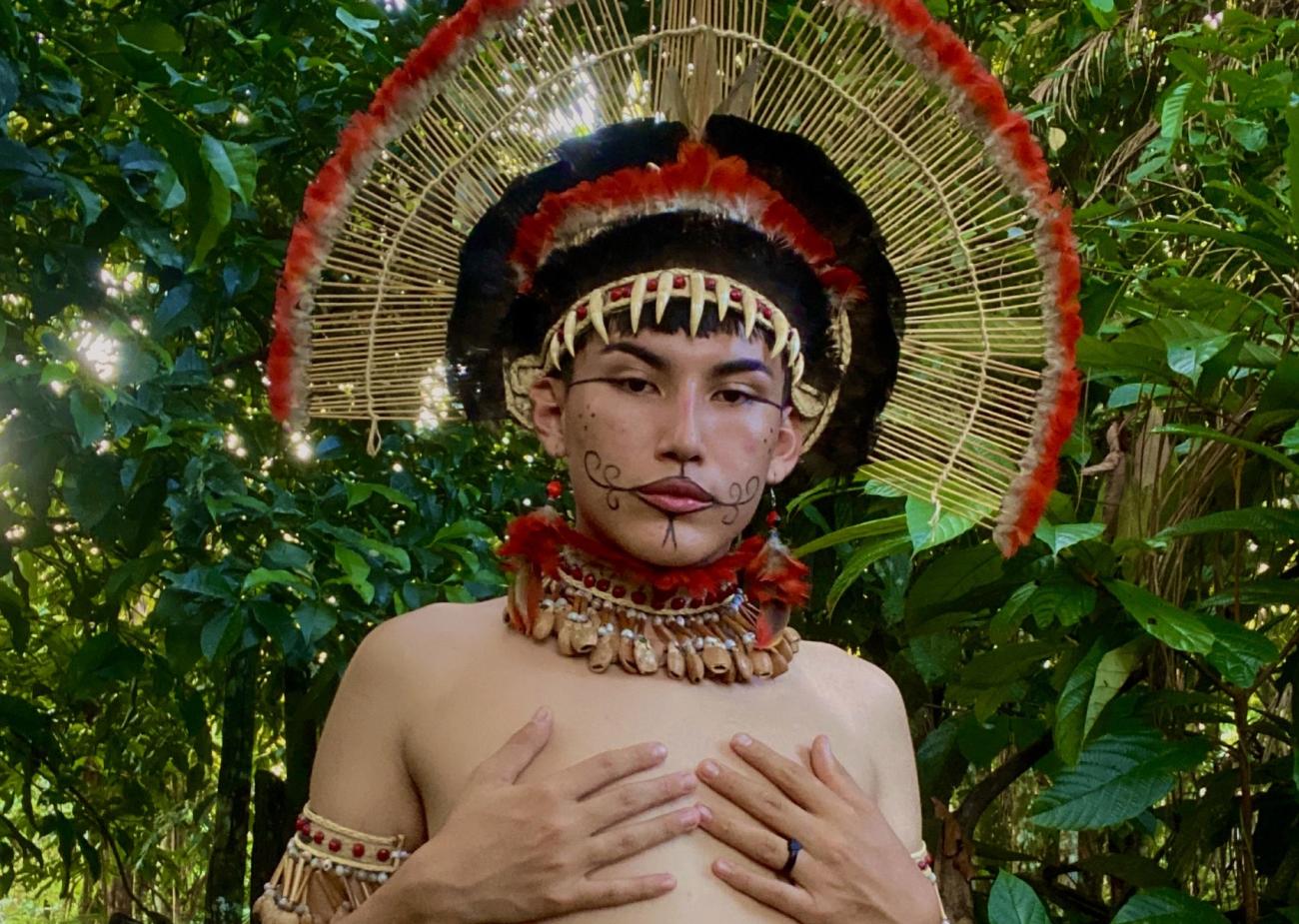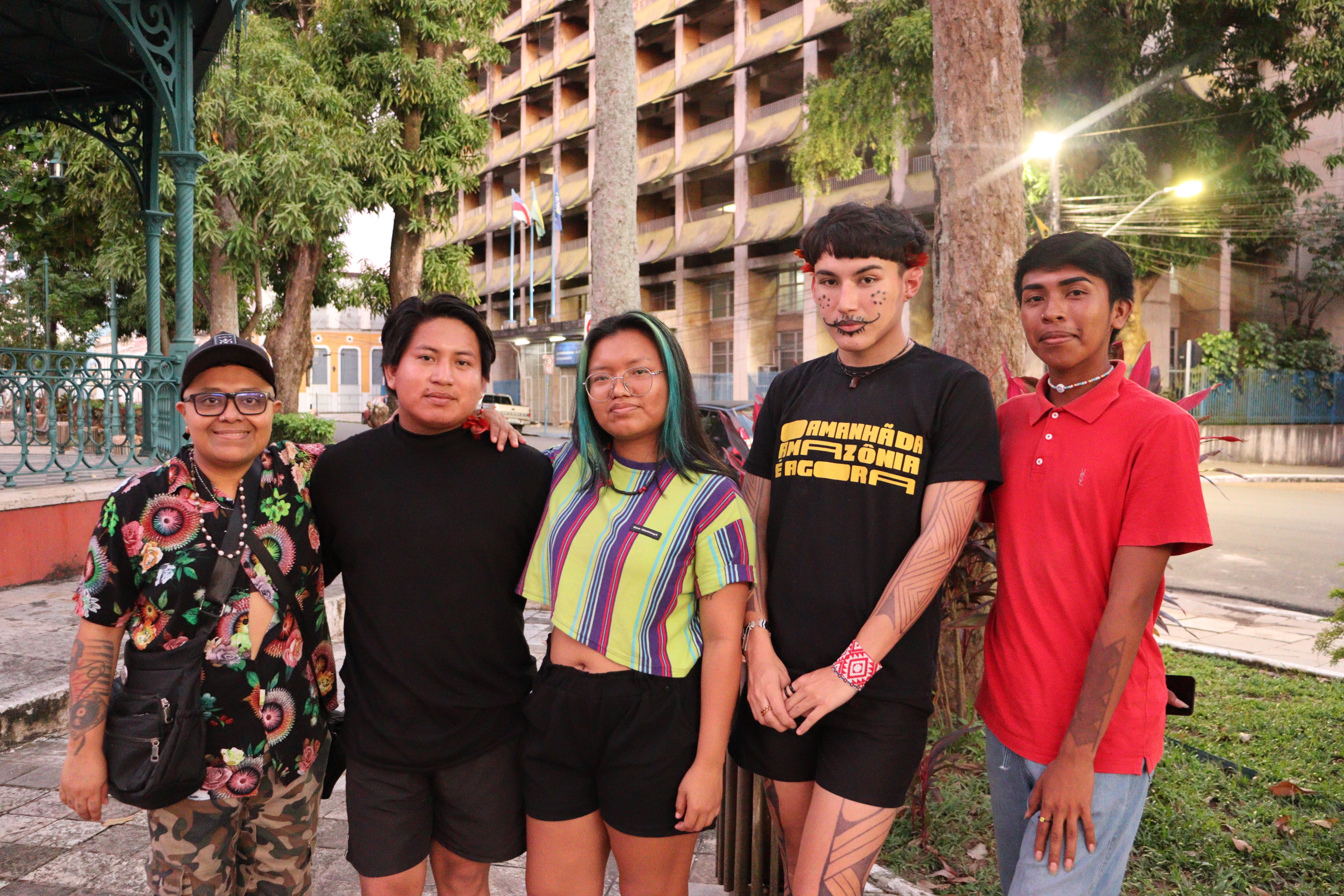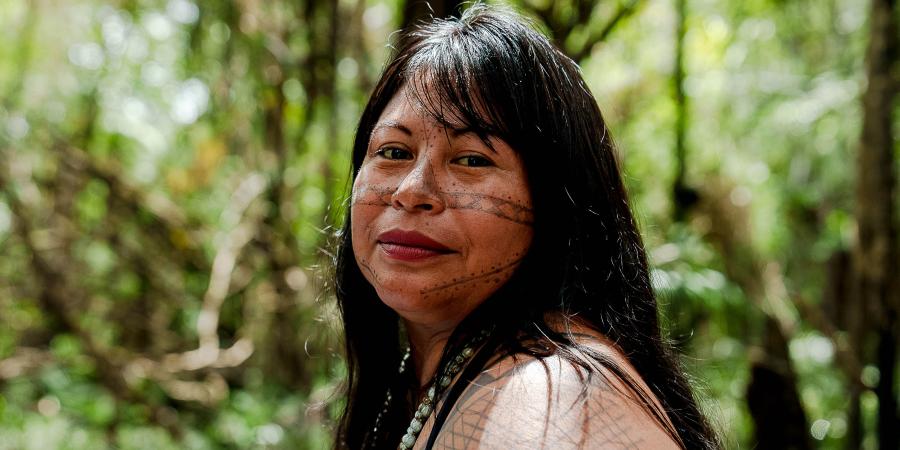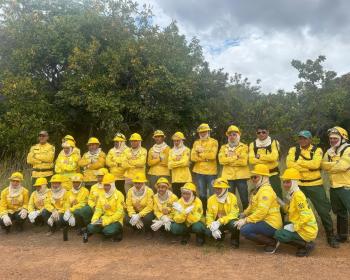
The diversity of expressions and manifestations of identity has been a recurring theme over time. Concepts and perceptions have varied in different contexts from urbanization to globalization. However, these do not always respond to or include all the diversity that exists in the world.
Kuenan Tikuna (Tariano and Tikuna) from Brazil talks about her reality as an Indigenous youth facing urbanization, and how gender and sexual diversity are often represented. Tikuna is a 19-year-old trans woman who belongs to two cultures: Tikuna Peoples from Alto Solimões on her mother's side, and Tariano Peoples from Alto Negro on her father's side. She currently works as an artist, activist, model, and Indigenous communicator in the Coordination of Indigenous Organizations of the Brazilian Amazon Network and the Makira E'ta Network (Network of Indigenous Women of the State of Amazonas).
Tikuna is also part of the executive team at the Miriã Mahsã Collective, which is the first 2SLGBTQ+ Indigenous collective in the state of Amazonas. In addition, she is part of the Indigenous Youth of the Federation of the Organizations of the Chiefs of Tikuna Indigenous Communities in her region. Cultural Survival spoke with Tikuna about issues of gender and diversity among Indigenous youth in Brazil.
"Since we, Indigenous Peoples, have been in our territories, we have been violated, even today, and mainly through our bodies. Today, everything, especially these Western concepts that have been imposed on our bodies, are the result of colonization," Tikuna said, expounding that the clash of religion and culture has created social conflict. "Gender was not something specific to us, to the people. It was much more about relationships, about our connection of respect for nature and continuing our ancestral legacy."
The Urban Context Is Much More Violent
In order to continue her university studies, Tikuna had to move to Brasilia. There, she encountered various challenges but also formed alliances that contributed to her personal and cultural development. She said that in urban areas, she encounters criticism and prejudice about how a trans person should be, and that it is difficult for people in her university to understand or accept this identity.
"As much as we have that false sense of acceptance, unfortunately people here in the urban context are much more violent. Being an Indigenous person, and being a trans person on top of that, these two issues always end up intersecting," Tikuna said.
Tikuna said it was complicated to join collectives and feel comfortable at university since identity and sexual diversity in these settings are often non-inclusive. "There were really violent things that traumatized me even within the movement itself, especially from the 2SLGBTQ+ movement, which was very white. We have a process where we take care of ourselves first, before expressing our identity to the rest of the world.
Despite the goodwill and warm welcome she was given by some, it was difficult for Tikuna to feel seen and understood because of the cultural clashes in perspectives. Many questioned her appearance for not conforming to the stereotypical image of a woman. "In my culture, I have to cut my hair because it's a thing of leaving the energy behind," Tikuna said. However, she said, many questioned whether she was truly a trans woman if she kept her hair short.

A Body Connected to the Territory
For Tikuna, the relationship with her territory is assumed from her body. There is a connection between the person and the land that leads to the return to this same territory at the end of one's life. It is in this spirituality where identity is found, but this is difficult to explain in an urban context, which is more sexualized and stereotypically gendered than Indigenous communities tend to be.
Tikuna said she defines herself as "A body, because we reproduce through it, we exist through it, and our spirituality is much more connected to the Earth." When she is questioned about who and what she is, she turns the question back on the questioner, responding, "’What is in me?’ I have short hair, which is a cultural thing in my village, but there are also cis women who wear their hair short and they are no less women."
Who is Kuenan Tikuna? "[I am] a trans woman, [I am] an Indigenous person. In order to strengthen ourselves and to exist, we have to assert ourselves in these spaces. I left the university and I came back to my community with that thought: we don't even have a notion of what gender and sexuality is," she said.
Many concepts and thoughts established in urban areas do not have resonance in Indigenous communities, at least not in the same form or name. That is why Tikuna returned to her community of origin, to blend both worlds, her life in her village and life at the university. She wants to raise awareness so that others do not have to suffer the feelings of isolation and culture shock that she experienced.
"What I have contributed so far, since I was born, being a trans girl, has been mainly to educate the people around me,” Tikuna said, adding that she believes that it is necessary to improve the educational systems and encourage better understanding of the diverse expressions of gender and sexuality beyond the dominant conceptions of the global north and the West.
The current situation in Brazil is an invitation for reflection, as there are a significant number of people belonging to the 2SLGBTQ+ community; according to the University of Sao Paulo, as of 2022, they constitute 12 percent of the national population.
However, although there has been progress, there is not yet a clear scenario for political participation and initiatives to improve the quality of life for 2SLGBTQ+ people in Brazil.


